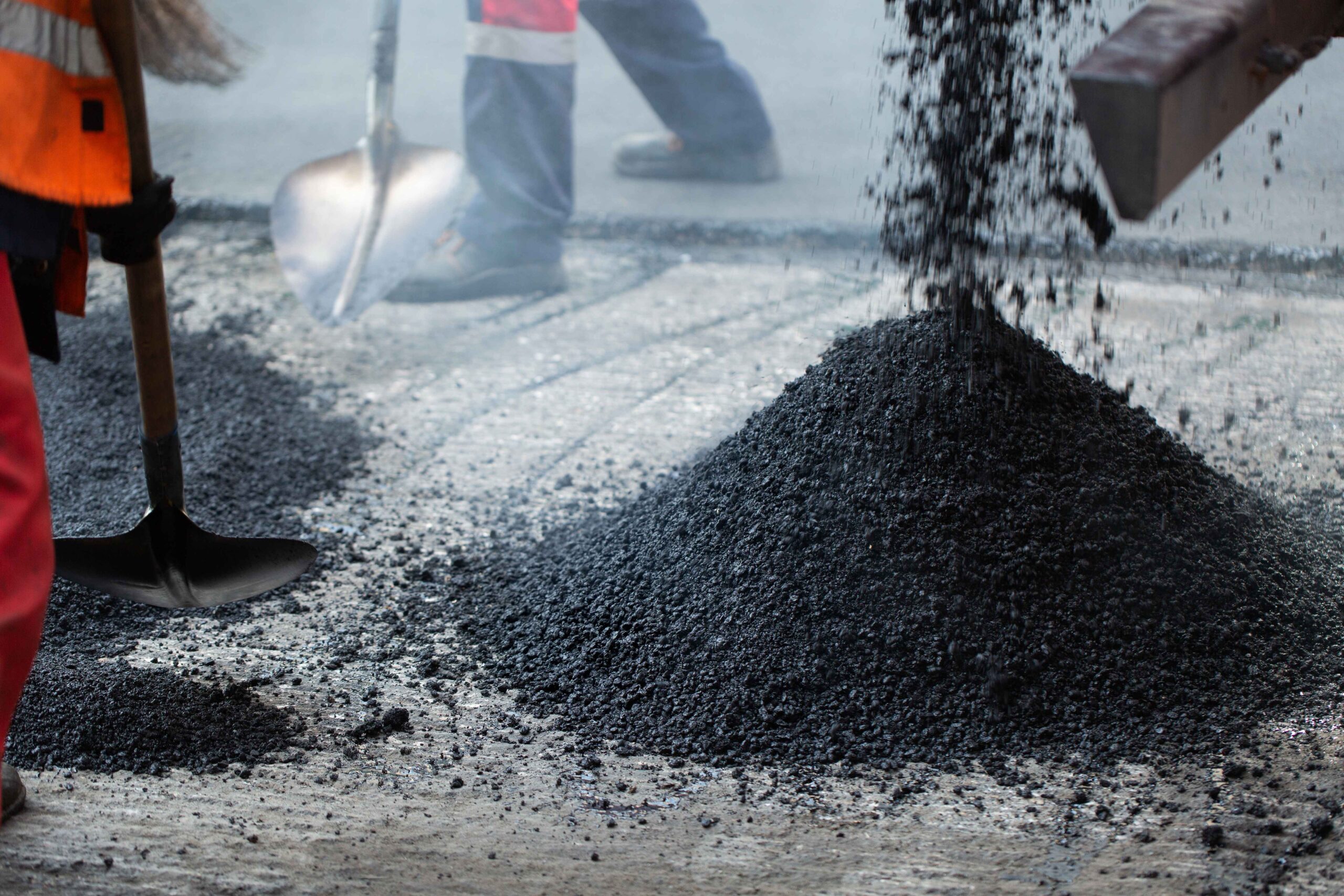
- min min
- No Comments
- October 4, 2025
Recycled Road Materials: Building Sustainable Surfaces Without Compromise
Sustainability is no longer an optional feature in construction — it’s an expectation. As local councils, developers, and contractors look for ways to reduce environmental impact, recycled road materials are leading the change in road surfacing innovation.
Today’s technology allows us to reuse existing road materials like asphalt, aggregates, and rubber without compromising on strength or durability. The result? Roads that perform just as well — if not better — than traditional surfaces, while dramatically reducing waste and carbon emissions.
At East Herts Surfacing, we’re proud to be part of this eco-conscious shift by incorporating sustainable materials into our surfacing projects across Hertfordshire and beyond.
What Are Recycled Road Materials?
Recycled road materials are reclaimed substances from old road surfaces or industrial waste that can be reprocessed and reused in new construction. These materials include:
- Reclaimed Asphalt Pavement (RAP): Milled or crushed asphalt that’s reheated and blended with fresh bitumen for reuse.
- Recycled Aggregates: Crushed concrete, brick, or stone reused as base or sub-base layers.
- Recycled Rubber: Ground-up tyres used in asphalt mixes to enhance flexibility and reduce noise.
- Glass, Plastics, and Slag: Recycled industrial by-products that improve binding and resilience in surfacing materials.
Each recycled component plays a role in creating strong, smooth, and environmentally responsible roads that meet modern performance standards.
Why the Shift Toward Recycled Materials Matters
The move to recycled materials isn’t just about saving resources — it’s about transforming the entire lifecycle of road construction. Here’s why it matters:
1. Environmental Responsibility
Traditional road surfacing consumes vast quantities of natural aggregates and bitumen. Recycling old materials significantly reduces the need for new raw materials, conserving natural resources and lowering emissions during production and transport.
2. Waste Reduction
Every year, millions of tonnes of asphalt and concrete are removed during resurfacing projects. By reusing these materials, contractors can divert waste from landfills, supporting circular economy principles.
3. Lower Carbon Footprint
Recycled road materials typically require less energy to produce and transport than virgin materials. This reduction directly contributes to lower CO₂ emissions and supports the UK’s broader climate goals.
4. Cost Efficiency
Using recycled aggregates and asphalt can lower material costs without affecting performance. In large-scale projects, these savings can be substantial while maintaining high standards of strength and safety.
How Recycled Road Materials Are Used in Modern Surfacing
1. Hot and Cold Asphalt Recycling
- Hot Mix Recycling involves heating and blending reclaimed asphalt with new binder and aggregate. This is ideal for high-traffic roads where durability is critical.
- Cold Mix Recycling is more energy-efficient, using emulsions and foamed bitumen at lower temperatures — perfect for local roads or rural areas.
Both methods help preserve surface performance while reducing environmental impact.
2. Recycled Aggregate Layers
Crushed concrete or brick is reused as a solid, stable base layer beneath tarmac or asphalt. This improves drainage and provides long-term support for the surface.
3. Rubberised Asphalt
Adding fine rubber particles from old tyres enhances flexibility and resistance to cracking — extending surface lifespan and reducing road noise.
4. Innovative Additives
Some modern mixtures now incorporate recycled plastics and glass, providing enhanced binding strength and better skid resistance. These sustainable solutions continue to evolve as technology advances.
The Benefits of Recycled Road Materials for Clients and Communities
Choosing recycled materials for road surfacing offers benefits far beyond sustainability:
- Longer-lasting surfaces: Enhanced flexibility and binding properties reduce cracking and fatigue.
- Faster project completion: Recycled materials often require less processing, allowing for quicker installation.
- Better aesthetics and safety: Modern recycling processes produce clean, smooth surfaces that perform to the same standards as new asphalt.
- Community impact: Sustainable surfacing demonstrates environmental responsibility, which strengthens public trust and reputation.
These advantages make recycled road materials a practical and forward-thinking choice for both commercial and local authority projects.
Real-World Applications
Across Hertfordshire and the UK, more contractors and councils are turning to recycled surfacing methods for both minor repairs and large-scale resurfacing works. At East Herts Surfacing, we’ve successfully used recycled asphalt and aggregates across multiple road improvement schemes, balancing sustainability with high-quality finishes.
You can explore some of our recent eco-friendly surfacing work in our Project Portfolio — showcasing how recycled materials deliver reliable, professional results without environmental compromise.
Future of Sustainable Road Construction
The future of road building is circular, digital, and efficient. As recycling technology advances, we’ll see even higher percentages of reclaimed materials used in new surfaces.
Emerging innovations include:
- Warm mix asphalt that reduces production energy.
- Bio-based binders that replace petroleum-based bitumen.
- Automated quality control ensuring recycled materials meet strict performance standards.
These changes are shaping a new era where sustainability and durability go hand in hand — and where recycled road materials become the industry standard rather than the exception.
Partner with East Herts Surfacing
At East Herts Surfacing, sustainability is at the heart of what we do. Our expert team combines proven surfacing techniques with environmentally responsible materials to deliver outstanding results for roads, car parks, and commercial spaces.
If you’re looking to reduce the environmental impact of your next surfacing project without compromising on quality, we’re here to help. Get in touch today through our Contact Page to discuss how we can incorporate recycled materials into your project.
Conclusion
Recycled road materials represent a smarter, greener future for the surfacing industry. They reduce waste, cut emissions, and save money — all while maintaining the high standards of strength and performance that modern roads demand.
By embracing recycled materials today, we can build roads that are not only durable and cost-effective but also sustainable for generations to come.
East Herts Surfacing is proud to lead the way in sustainable surfacing — proving that eco-friendly roads can be every bit as strong, smooth, and reliable as traditional ones.




